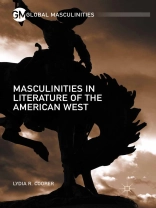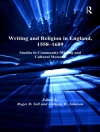The Western genre provides the most widely recognized, iconic images of masculinity in the United States — gun-slinging, laconic white male heroes who emphasize individualism, violence, and an idiosyncratic form of justice. This idealized masculinity has been fused with ideas of national identity and character. Masculinities in Literature of the American West examines how contemporary literary Westerns push back against the coded image of the Western hero, exposing pervasive anxieties about what it means to ‘act like a man.’ Contemporary Westerns critique assumptions about innate connections between power, masculinity, and ‘American’ character that influence public rhetoric even in the late 20th and early 21st centuries. These novels struggle with the monumental challenge of all Westerns: the challenge of being human in a place where ‘being a man’ is so strictly coded, so unachievable, so complicit in atrocity, and so desirable that it is worth dying for, worth killing for, or perhaps worth nothing at all.
Содержание
Introduction: ‘My American heart’: How Contemporary Westerns Reimagine Masculinity
1. The Death of a Cross-Dressing Bear: Sexual Violence and Male Rape on the Frontier of Blood Meridian
2. Of Sterility and Fertility: Feminine Masculinity and the Western in Ceremony
3. Outlaw Geography: Place and Masculinity in Desperadoes and The Assassination of Jesse James by the Coward Robert Ford
4. Savages and Citizens: Revisions of the Captivity Narrative in Gardens in the Dunes and The Heartsong of Charging Elk
5. The Un-Punishing of Anton Chigurh: Fraternity as the Final Frontier in No Country for Old Men
6. Martial Masculinity and the Ethics of Heroism in Fools Crow
Об авторе
Lydia R. Cooper is Assistant Professor of English at Creighton University, USA. She is the author of No More Heroes: Narrative Perspective and Morality in Cormac Mc Carthy, as well as numerous articles on Mc Carthy and other contemporary American and Native American writers.












